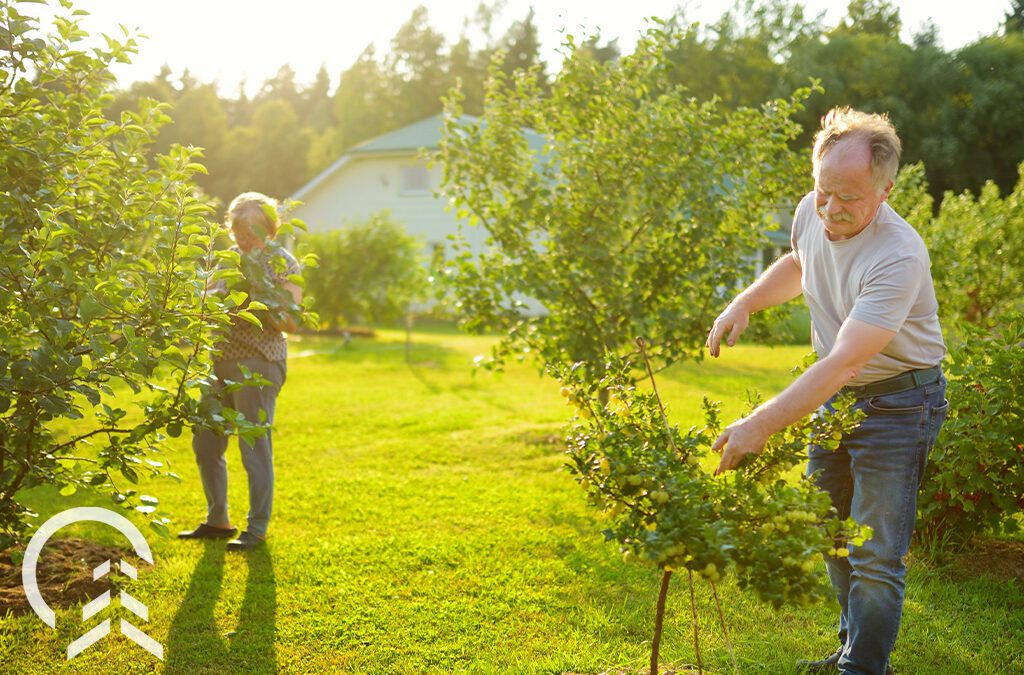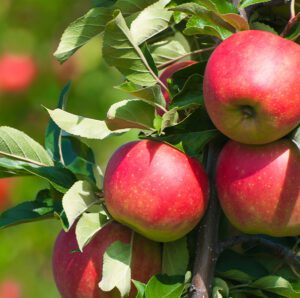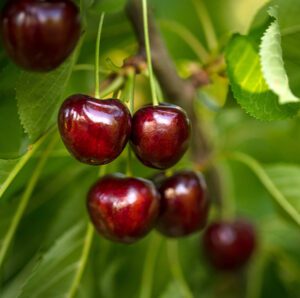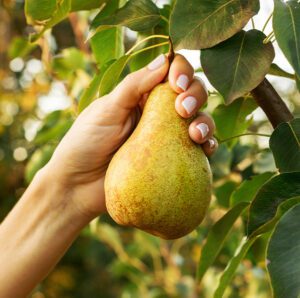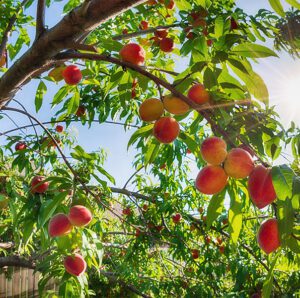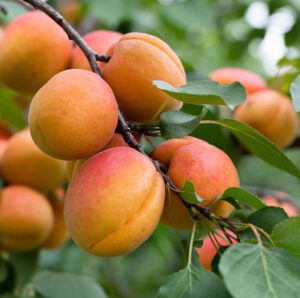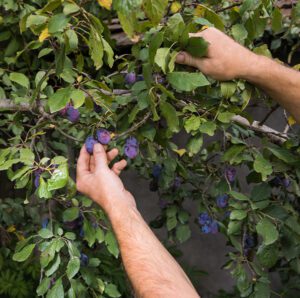An edible orchard is one of the easiest things to plant and one of the greatest long-term gifts you can give to you and your garden. Plant a few trees, and you can enjoy hundreds of pounds of fruit for years to come. If you’re wondering what to plant or how to begin, here’s a guide to help you get in the ground!
How Do You Start an Edible Orchard in Chicago?
The first step to starting a backyard orchard is to see where you can plant new fruit trees. Most fruit trees need about 6-8 hours of sunlight per day, so if you don’t have enough light, you might be better off planting berries, which can tolerate more shade. You also need to consider if you have enough space, as this will determine the types and number of trees you can grow. If your space is limited, remember that you can choose dwarf varieties or keep your trees pruned to a small size.
Which Fruit Trees Can You Grow in Illinois?
The next step is to see which trees you can include in your edible orchard. Fortunately, we can grow a wide variety of fruit in Illinois, including the following:
Apples
Illinois may not be one of the top apple-producing states, but we can still grow plenty of delicious apple varieties. Whether you’re baking, storing, or eating them straight from the tree, you can certainly find a variety to match your taste. Honeycrisp, Gala, Braeburn, Fuji, Red Fuji, and Pink Lady are just a few popular apple varieties you can grow in the Chicago area.
Cherries
If you’re looking for a cherry to grow in Illinois that’s sweet enough to eat right off the tree, look no further than the hardy Stella variety. Likewise, the Montmorency and North Star are just two of the hardy, sour cherry varieties that thrive in our state. These sour cherries are also the perfect fruit for baking into pies, turning into jam, pressing into juice, or even eating right off the tree.
Pears
Humans have been cultivating and eating pears for at least 4000 years, and we can thank these generations of orchardists for breeding pears that thrive in our climate. The Barlett, D’Anjou, Asian 20th Century, and Asian Shinseiki are four excellent choices for the Chicagoland area that each have their own unique texture and flavor. Besides providing their succulent fruit, pear trees are also prized for their beauty, making them a beautiful and delicious addition to your backyard!
An edible orchard is one of the easiest things to plant and one of the greatest long-term gifts you can give to you and your garden.
Peaches
Craving peaches? If so, you don’t have to wait for shipments from Georgia. Instead, you can grow peaches right in your Chicagoland edible orchard. The succulent and almost fuzzless Red Haven is a top seller, just ahead of the quintessential Elberta peach with its equally juicy yellow flesh. If you’re feeling particularly adventurous, you can also choose the Saturn Peach, which has sweet, white flesh and a unique donut shape. All three are freestone and produce an abundance of fruit.
Apricots
Apricots don’t ship very well, so they’re best enjoyed fresh from the tree. If you’re looking to try your hand at cultivating homegrown apricots, try out the Moongold variety, which has showy white flowers and ripens in July.
Plums
Plums are another fruit that’s best enjoyed straight off the tree. After all, is there anything better than ripe, juicy plums that explode in your mouth? Whether you’re into dehydrating, jam-making, or just eating, a plum tree is always a great asset to your edible orchard. Some of our favorites include the popular Stanley plum, with its characteristic blue skin and green flesh, or the equally tasty red-skinned and golden-orange-fleshed Santa Rosa.
Does My Edible Orchard Need Companion Trees?
Some fruit varieties need companion trees to help with pollination in the spring. For example, most apple trees need another planted close by to ensure pollination, meaning you either need to plant two apple trees or count on your neighbor’s trees to act as companions.
You don’t need to grow a full orchard to enjoy fruit trees within arm’s reach of the kitchen. Even one or two trees can provide an abundance of delicious, healthy fruit for your family. The challenge is rarely in growing them but rather in knowing how to use them when the harvest comes. Sauces, pies, fruit leather, jams, and other preserves are all incredibly tasty ways to use up excess fruit, and if you still have leftovers, you can always share them with the neighbors.
If you’re ready to grow fresh fruit this summer, visit our garden centers in Bloomingdale and Carpentersville to select the best trees for your edible orchard!

